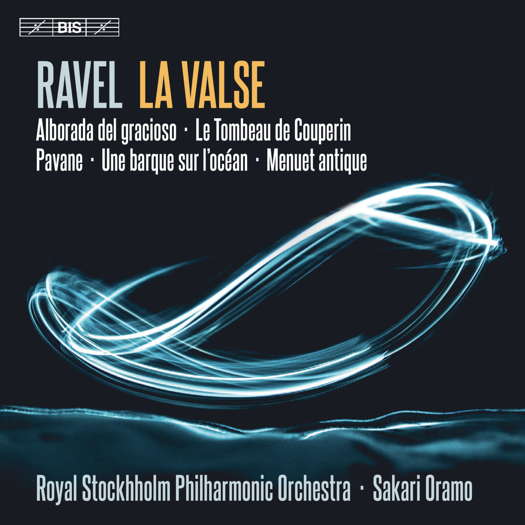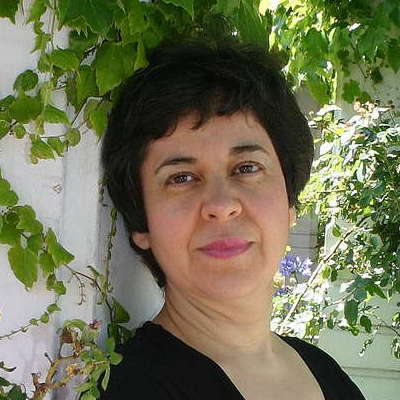- Centaur
- Pompeiu Hărăşteanu
- David Epstein
- Heino Eller
- Dimitri Mitropoulos
- Malcolm Lipkin
- Nardus Williams
- Portland

Magical Brilliance
GERALD FENECH listens to orchestral music by Ravel
'... wonderfully detailed accounts that reveal all of Ravel's orchestral finesse and deft harmonic touches.'
Maurice Ravel was born on 7 March 1875 in a village near Saint-Jean-de-Luz, France, to a Swiss father and a Basque mother. His family background was an artistic and cultivated one, and the young boy received every encouragement from his father when his musical talent became apparent at an early age. In 1899, at fourteen, Ravel entered the Paris Conservatoire, where he remained until 1905. During this period he composed some of his best-known works including Pavane pour une infante défunte, the Sonatina for piano and the String Quartet. All these works, especially the latter two, show astonishingly early perfection of style and craftsmanship that are the hallmarks of Ravel's entire oeuvre.
Ravel is one of the rare composers whose early works seem scarcely less mature than those of his maturity. Indeed, his failure at the Conservatoire, after three attempts, to win the prestigious 'Prix de Rome' for composition caused something of a scandal. As a result, the Conservatoire director, the famous Theodore Dubois, had to resign, and his place was taken by Ravel's friend Gabriel Fauré, with whom the composer had studied. Ravel was in no sense a musical revolutionary. He was, for the most part, content to work within the established formal and harmonic conventions of his day, still firmly rooted in tonality. Yet, so very personal and individual was his adaptation and manipulation of the traditional musical idiom that, it would be true to say, he forged himself a language of his own that bears the stamp of his personality as unmistakeably as any work of Bach or Chopin.
While his melodies are almost always modal, his harmonies derive their somewhat acid flavour from his fondness for 'added' notes and unresolved 'appoggiaturas', extraneous to the chord, that are allowed to remain harmonically unresolved. He enriched the piano and symphonic literature no end, but he was also prolific in other genres, such as opera and song, and many of his works still enjoy great popularity despite the fact that musical tastes have somewhat changed. Ravel's life was in the main uneventful. He never married, and though he enjoyed the circle of a few chosen friends, he lived as a semi recluse. He served as a truckdriver in World War I, but was discharged in 1917 due to his fragile disposition. In 1928 he toured Canada, the States and England, the latter bestowing on the composer an honorary degree of doctor of music from Oxford.
The last five years of Ravel's life were clouded by 'aphasia', which not only prevented him from writing another note of music but also deprived him from the power of speech and made it impossible for him even to sign his name. The real tragedy was that, despite this heartbreaking condition, his musical imagination remained as active as ever. Ravel died on 28 December 1937 aged sixty-two. Marcel Marnat's complete catalogue of Ravel's works lists some eighty-five compositions, including many incomplete or abandoned. Though that total is small in comparison with the output of major contemporaries, it is nevertheless inflated by Ravel's penchant of writing works for piano and later rewriting them as independent pieces for orchestra. The performable body of works numbers about sixty; slightly more than half are instrumental. Ravel's music includes piano pieces, chamber music, two piano concerti, ballet music, opera and song cycles. He wrote no symphonies or church works.
On the present issue, all except one work, La Valse, were first conceived for piano, which raises the question how is it possible to transfer such wonderful pianistic music to the orchestra without making it sound like a mere 'colourized' version. Ravel's supreme orchestral writing was the result of a long apprenticeship and careful study of orchestration treatises as well as scores, notably of works by Rimsky-Korsakov and Richard Strauss. Although his skills as an orchestrator are much admired today, his ability to coax new sounds out of the orchestra was not always appreciated in his own time. Thankfully, Ravel's orchestral palette did not take long to be recognised for all its magical brilliance, and today, just more than eighty-two years after his death, it still exerts its entrancing hold on the listener. Among the works on this programme are some of Ravel's earliest compositions, including the much-loved Pavane pour une infante défunte and Une barque sur l'océan.
Listen — Ravel: Une barque sur l'océan
(BIS 2438 track 8, 0:01-0:57) ℗ 2021 BIS Records AB :
Le Tombeau de Couperin, Menuet antique and Alborada del gracioso are three exquisitely scored miniatures that reveal Ravel's affinity with the dance.
Listen — Ravel: Alborada del gracioso
(BIS 2438 track 7, 0:01-0:57) ℗ 2021 BIS Records AB :
The disc ends with the spectacular La Valse, written in 1920, and is one of just four works originally conceived for the orchestra. The idea of composing a tribute to Johann Strauss had pursued Ravel since 1906, but it took a commission from Sergei Diaghilev of the Ballets Russes for him to return to the project. When Diaghilev found it unsuitable for a ballet, Ravel gave it the subtitle 'choreographic poem for orchestra'. It was premiered in concert in 1920 and enjoyed instant success. More than a hundred years after its first performance this orchestral tour-de-force still manages to rouse immense excitement in the concert hall, and its explosive 'finale' is indeed breathtaking.
Listen — Ravel: La Valse
(BIS 2438 track 11, 11:25-12:14) ℗ 2021 BIS Records AB :
Sakari Oramo and the Royal Stockholm Philharmonic Orchestra give wonderfully detailed accounts that reveal all of Ravel's orchestral finesse and deft harmonic touches. Tempi are meticulously observed, and Oramo's in-depth knowledge of these scores serves the transparent element of the music to brilliant effect. From Stockholm to Paris with love and affection - strongly recommended.
Copyright © 11 April 2022
Gerald Fenech,
Gzira, Malta

CD INFORMATION - RAVEL: LA VALSE
CLASSICAL MUSIC ARTICLES ABOUT STOCKHOLM




